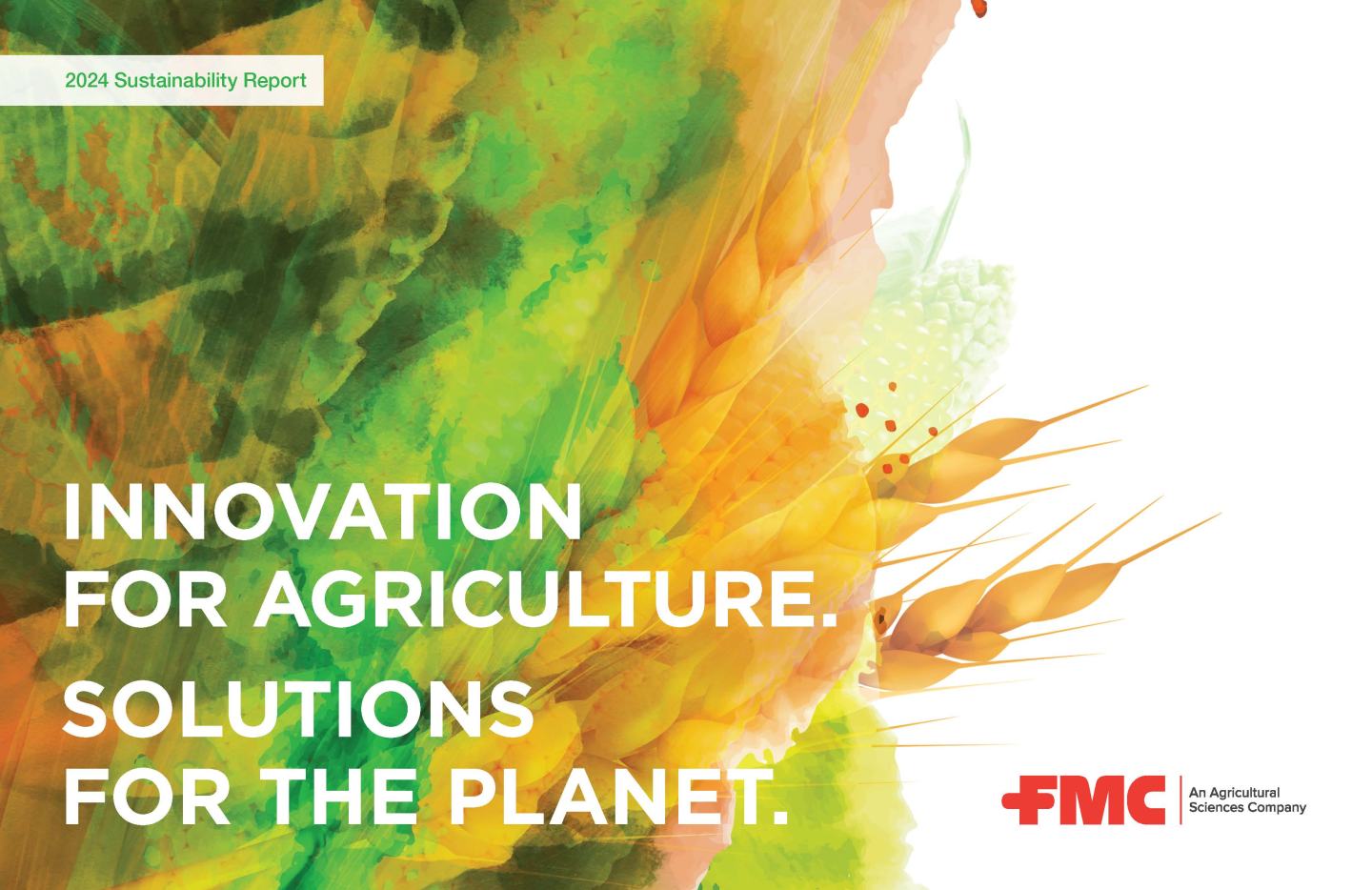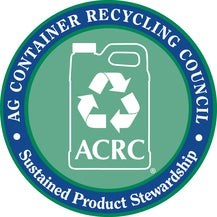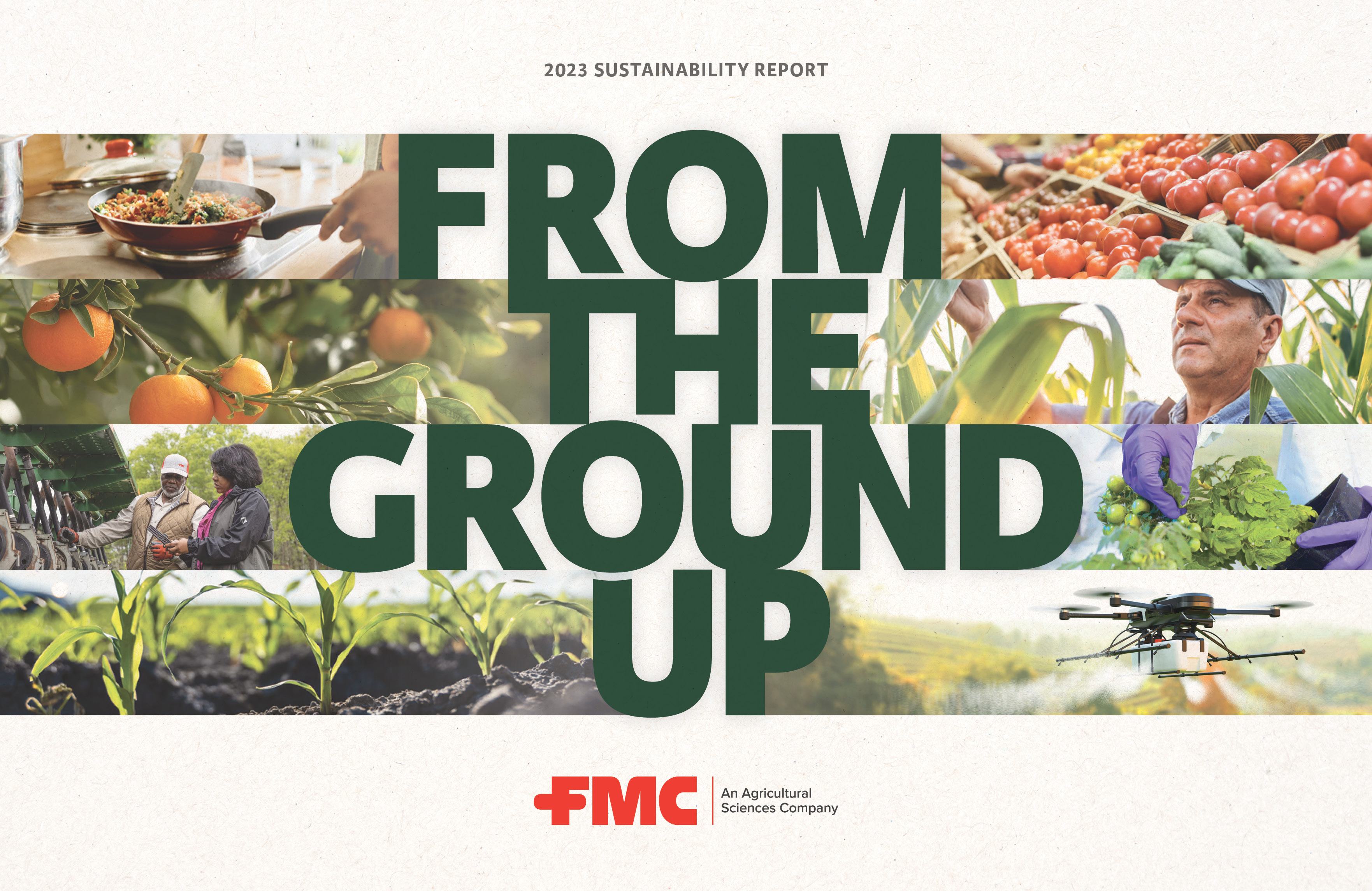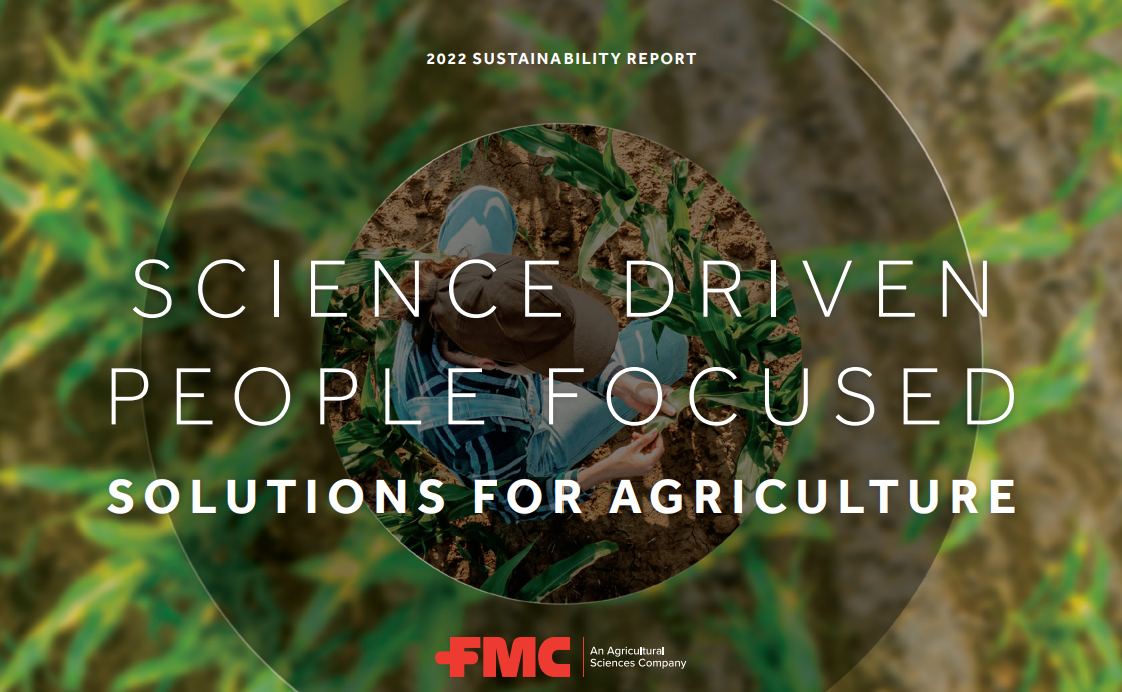
FMC's 2024 Sustainability Report
Our annual sustainability report continues to be a key ESG reporting document for FMC. The environmental and safety data in this report include all sites under FMC’s operational control in the 2024 calendar year.

Materiality Assessment
FMC began conducting impact materiality assessments in 2013 and undertook our first double materiality assessment in 2024. This assessment evaluates both financial and impact materiality, considering both the potential effects of FMC on society and the environment and how these factors may financially impact our business. FMC’s double materiality assessment highlights the priority topics associated with our business, operations, and value chain, as shown in our sustainability report.
Stakeholder Relations
Stakeholder engagement is essential to identify important initiatives, issues and trends for FMC. We regularly meet with several stakeholder groups. Taking their feedback into account is vital as FMC continues to evolve and grow. The table below indicates our main stakeholder groups, how we engage them and examples of key topics.
Stakeholder Engagement Group Table
Click to open/close
| STAKEHOLDER GROUP | CHANNELS OF ENGAGEMENT | FREQUENCY | KEY TOPICS COVERED |
|---|---|---|---|
|
|
Town Hall meetings Reports, email blasts, videos Surveys Focus Groups Training Social media |
Quarterly Monthly Annually As needed Annually Weekly |
Safety Ethics and compliance Sustainable procurement Sustainability assessment tool DEI Sustainability branding |
| Prospective employees |
Annual Report |
Annually |
DEI |
| Customers |
Meetings Innovation collaboration Industry partnerships |
Quarterly Quarterly Quarterly |
Innovation Pollinator safety Product stewardship |
| Suppliers |
Supplier audits Supplier surveys Code of Conduct |
Biannually Quarterly Monthly |
Fair wages and labor Sustainability goals Responsible care |
| Investors |
Ratings/rankings and indices Conference calls Surveys |
Annually Quarterly Annually |
FMC's performance and our strategic growth plan DEI, climate change and food security The sustainability of new products |
| Local communities |
Donations to local organizations Employee volunteers Community Advisory Panels |
Quarterly Monthly Quarterly |
Hunger Science Education Disaster Relief |
| Regulators and public policy makers |
Meetings Risk assessments and studies |
Monthly Regularly |
Endangered species Product stewardship |
| Non-government organizations (NGOs) |
In-person meetings/conference calls Survey responses Policies and best practices |
As needed Bi-annually As needed |
Biodiversity decline Secondary standards UN Sustainable Development Goals |
| Industry associations |
Leading/participating on committees and working groups Advocacy |
Bi-monthly As needed |
Responsible care Product stewardship |
| External Sustainability Advisory Council |
In-person meetings Conference calls |
Biannually As needed |
Sustainability strategy & reporting Innovation |
Association Memberships
Click to open/close
FMC is actively engaged in key industry groups. Some examples include:
- Agricultural Container Recycling Council
- Agricultural Retailers Association
- American Chamber Denmark
- American Chamber European Union
- American Chemistry Council
- American Soybean Association
- Brazil-US Business Council
- Biological Products Industry Alliance
- Commercial Products Association
- CropLife and country affiliates
- Entomological Society of America
- Greater Philadelphia Chamber of Commerce
- Global Alliance of Independent Ag Consultants
- International Conservation Caucus Foundation
- National Agricultural Aviation Association
- National Agricultural Marketing Association
- National Alfalfa and Forage Association
- National Alliance of Independent Crop Consultants
- National Association of Manufacturers
- National Association of Wheat Growers
- National Corn Growers Association
- National Cotton Council
- National Pest Management Association
- National Sunflower Association
- Public Affairs Council
- Pyrethroid Working Group
- Regulatory Improvement Council
- Responsible Industry for a Sound Environment
- State crop protection associations (US)
- Society of Chemical Manufacturers and Affiliates
- US China Business Council
- US Council for International Business
- US India Strategic Partnership Forum
- U.S. Rice Federation
- United Fresh
Responsible Care®
Click to open/close
As a member of the American Chemistry Council (ACC), FMC has been an active participant in the Responsible Care® program since its inception. Responsible Care is the chemical industry’s world class Environmental, Health, Safety, and Security (EHS&S) performance initiative. It helps member companies enhance their EHS&S performance, discover new business opportunities, and build a strong foundation for the ACC's advocacy on behalf of the industry.
Participation in Responsible Care® is a commitment to:
- Improve Environmental, Health and Safety performance.
- Use resources efficiently.
- Engage with stakeholders.
- Report on progress, openly and transparently.
- Effectively manage chemical products.
Ag Container Recycling Council
Click to open/close
 The Ag Container Recycling Council (ACRC) is a not-for-profit trade association of companies that produce, formulate, package and distribute crop protection and other agrochemical products. A network of ACRC contractors collects and recycles empty, triple rinsed HDPE agricultural chemical containers at no cost to consumers. Farmers and commercial applicators nationwide participate in this free ACRC recycling program with more than 200,000,000 pounds of plastic having been recycled since 1992. The ACRC researches and approves specific end uses for the recycled HDPE. Many of these end uses, like agricultural drain tile, provide ongoing benefit to the agricultural industry. FMC is one of 51 member companies that has helped fund and grow this program for its customers for many years. To learn more about the ACRC, visit http://www.acrecycle.org.
The Ag Container Recycling Council (ACRC) is a not-for-profit trade association of companies that produce, formulate, package and distribute crop protection and other agrochemical products. A network of ACRC contractors collects and recycles empty, triple rinsed HDPE agricultural chemical containers at no cost to consumers. Farmers and commercial applicators nationwide participate in this free ACRC recycling program with more than 200,000,000 pounds of plastic having been recycled since 1992. The ACRC researches and approves specific end uses for the recycled HDPE. Many of these end uses, like agricultural drain tile, provide ongoing benefit to the agricultural industry. FMC is one of 51 member companies that has helped fund and grow this program for its customers for many years. To learn more about the ACRC, visit http://www.acrecycle.org.
Sustainability Reporting Frameworks
Click to open/close
FMC aligns with and reports following the guidance of a variety of sustainability reporting frameworks as a part of our annual sustainability report. Frameworks include but are not limited to the Taskforce for Financial-Relate Disclosures (TCFD), United Nations Global Compact (UNGC), the Global Reporting Initiative (GRI) and the Sustainability Accounting Standards Board (SASB).








